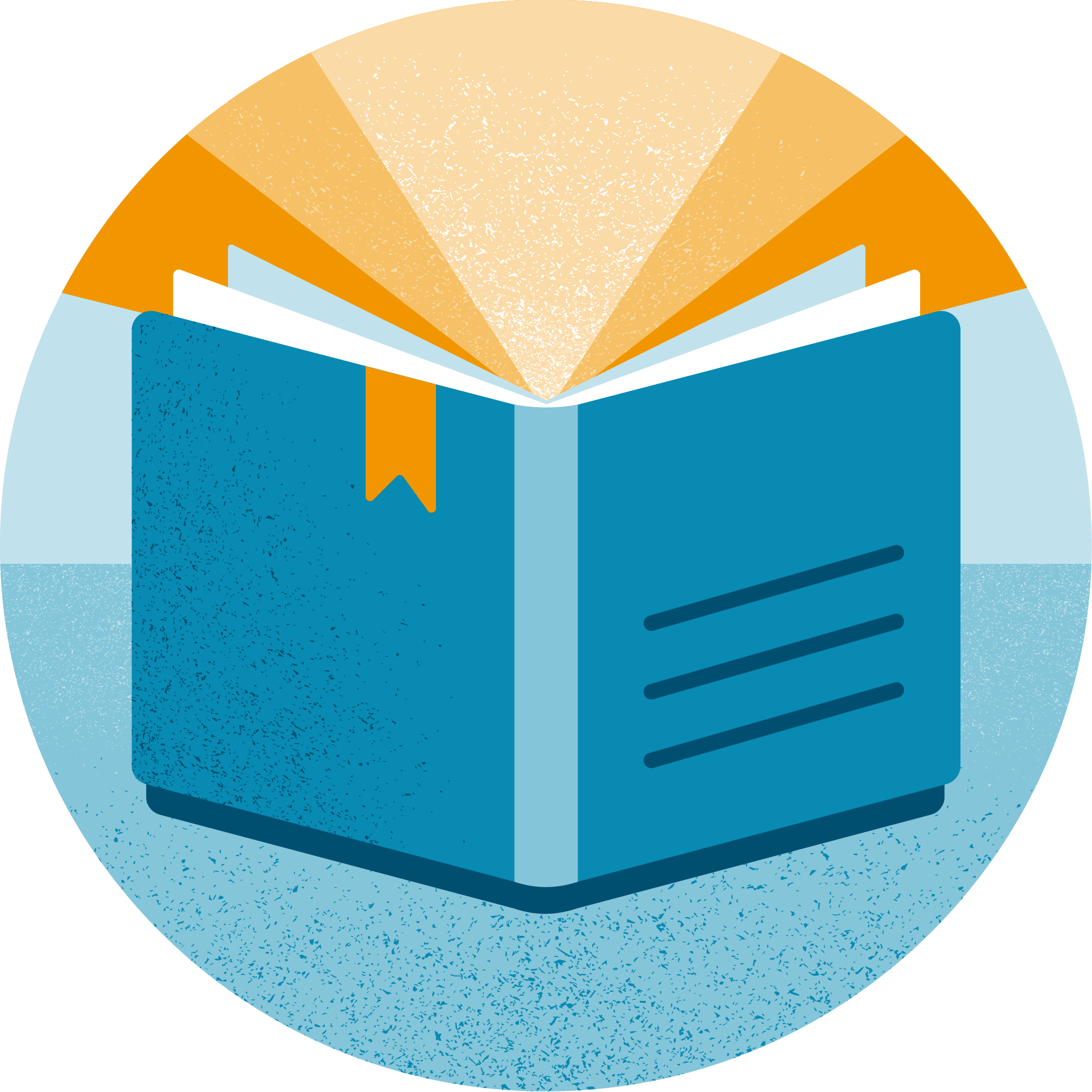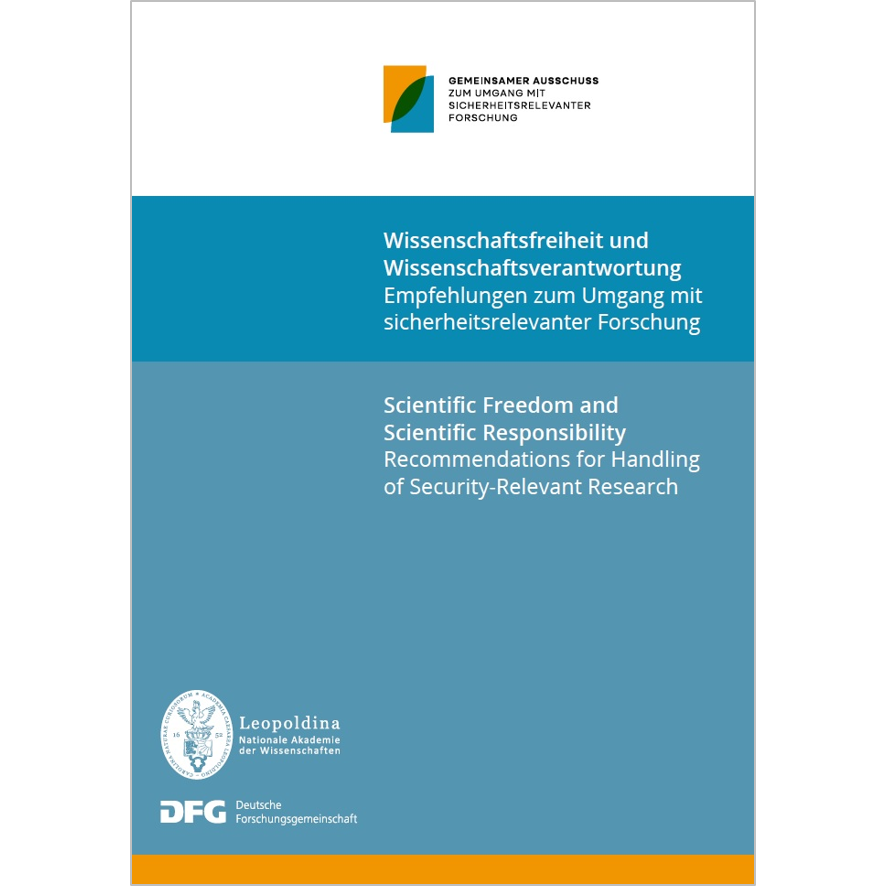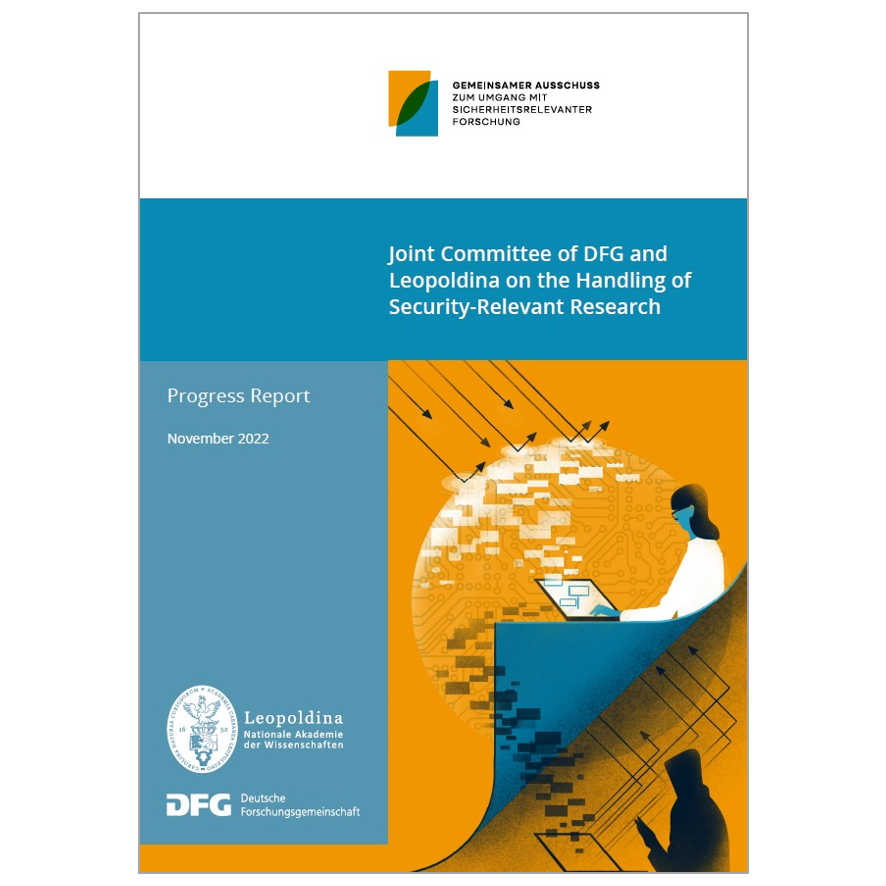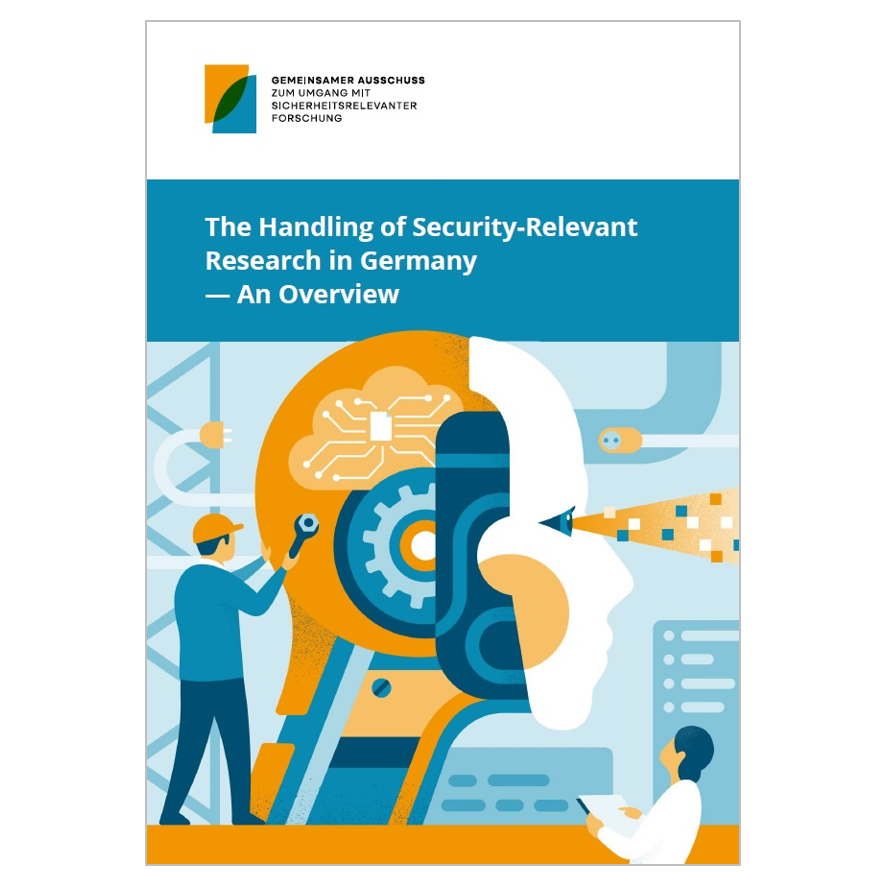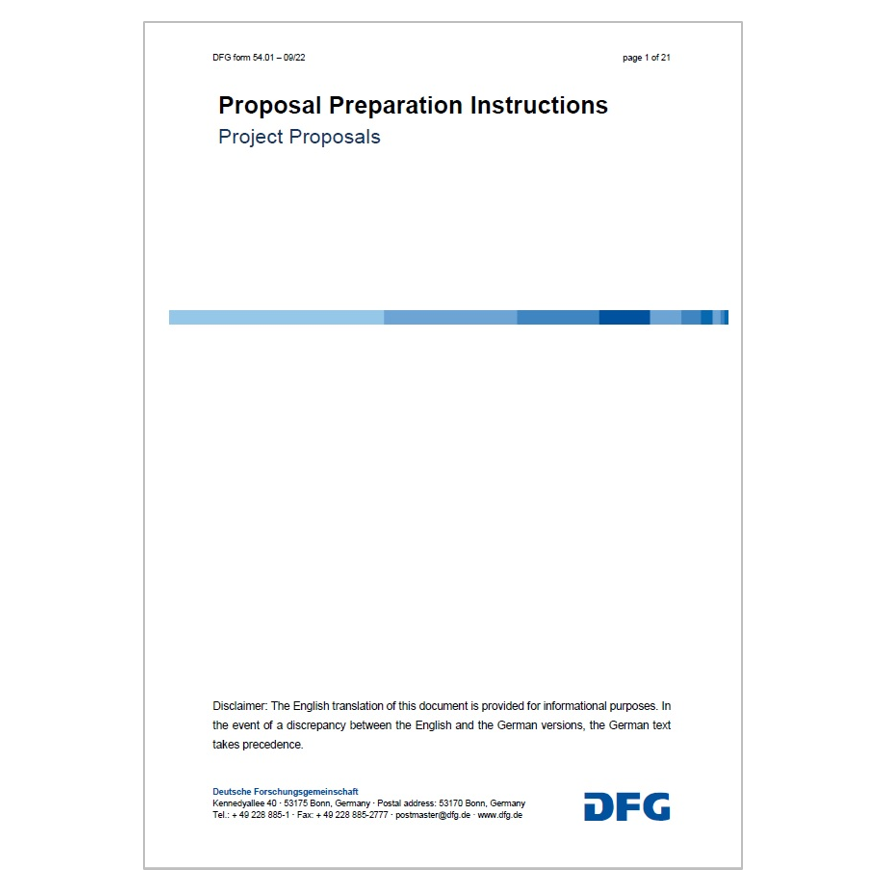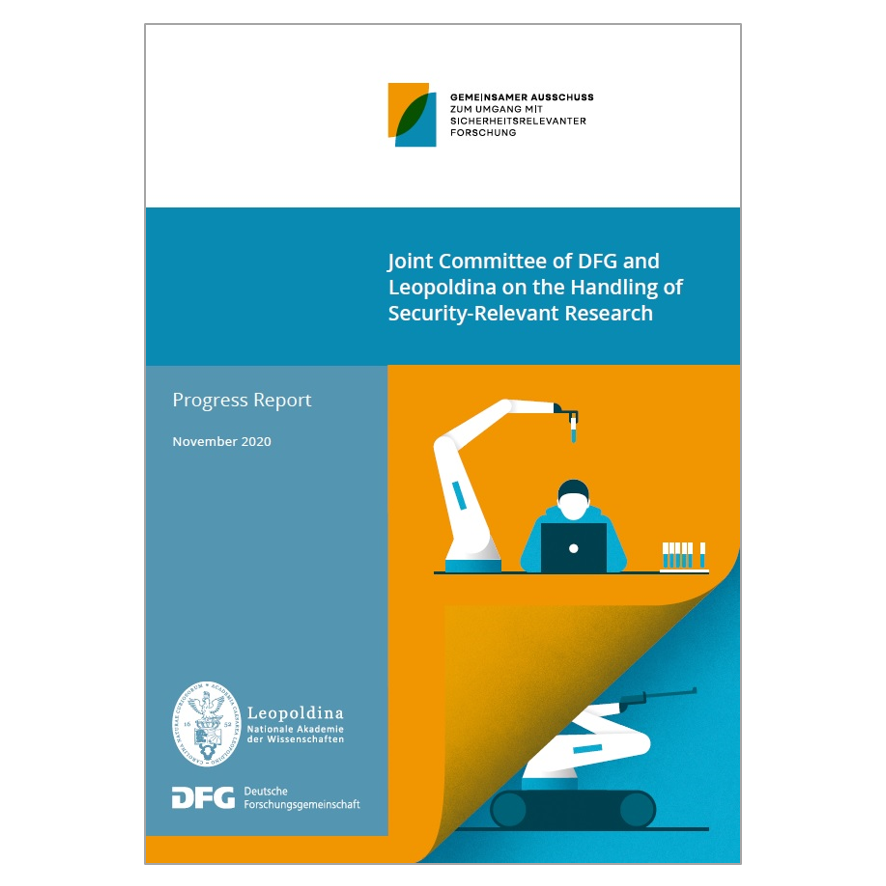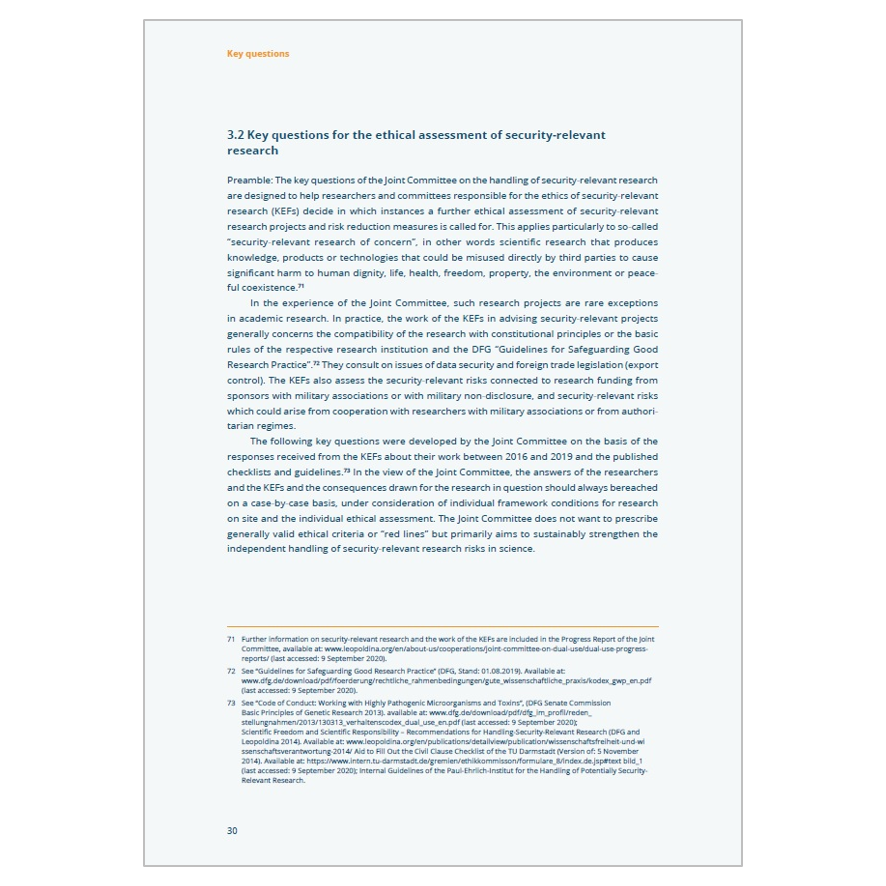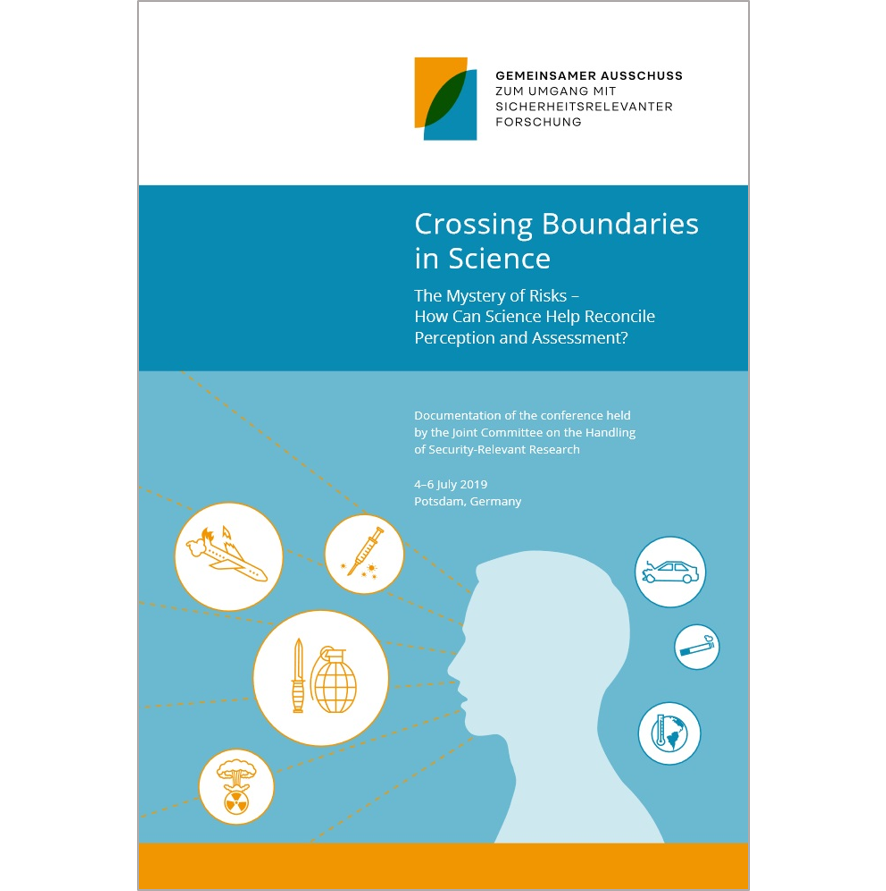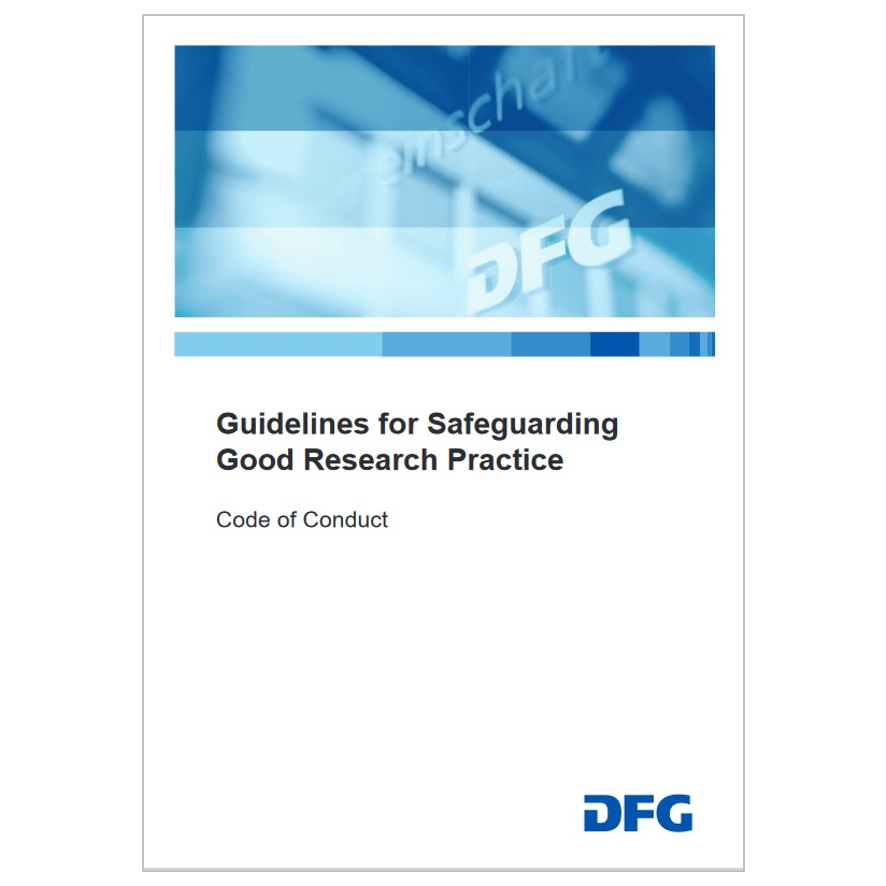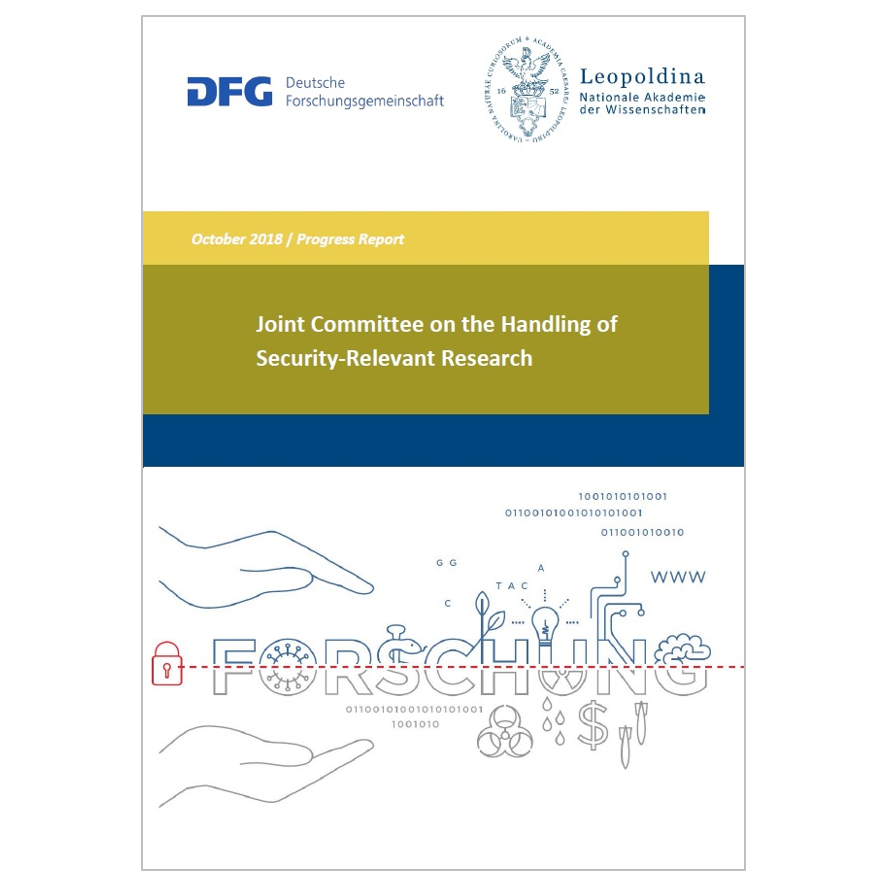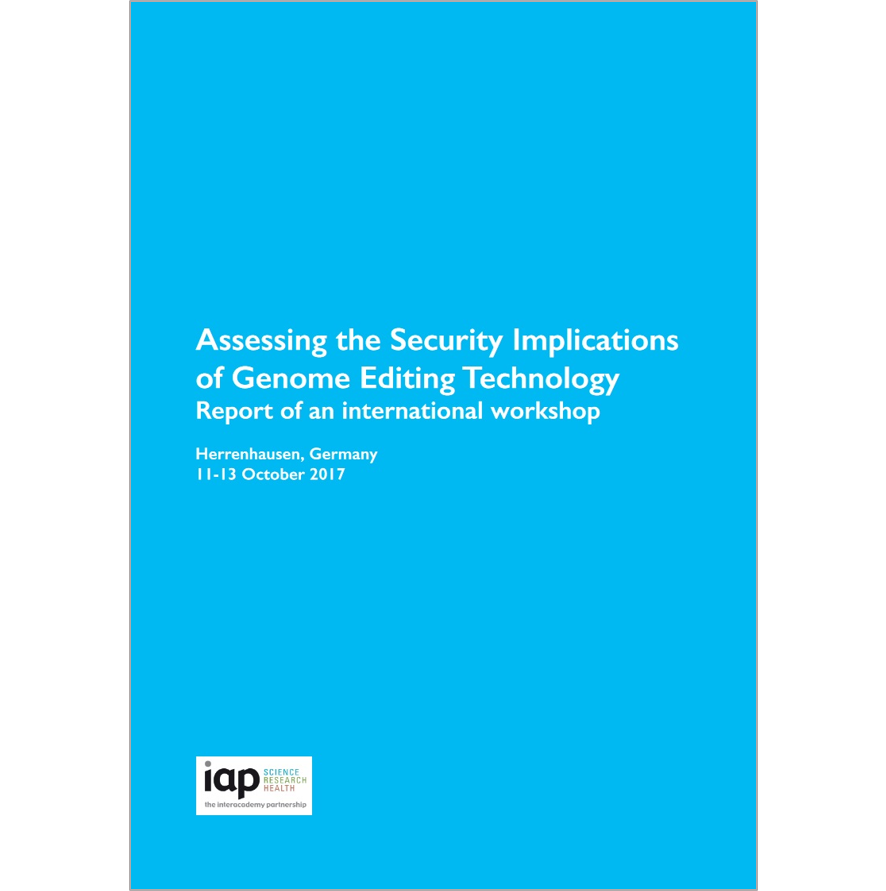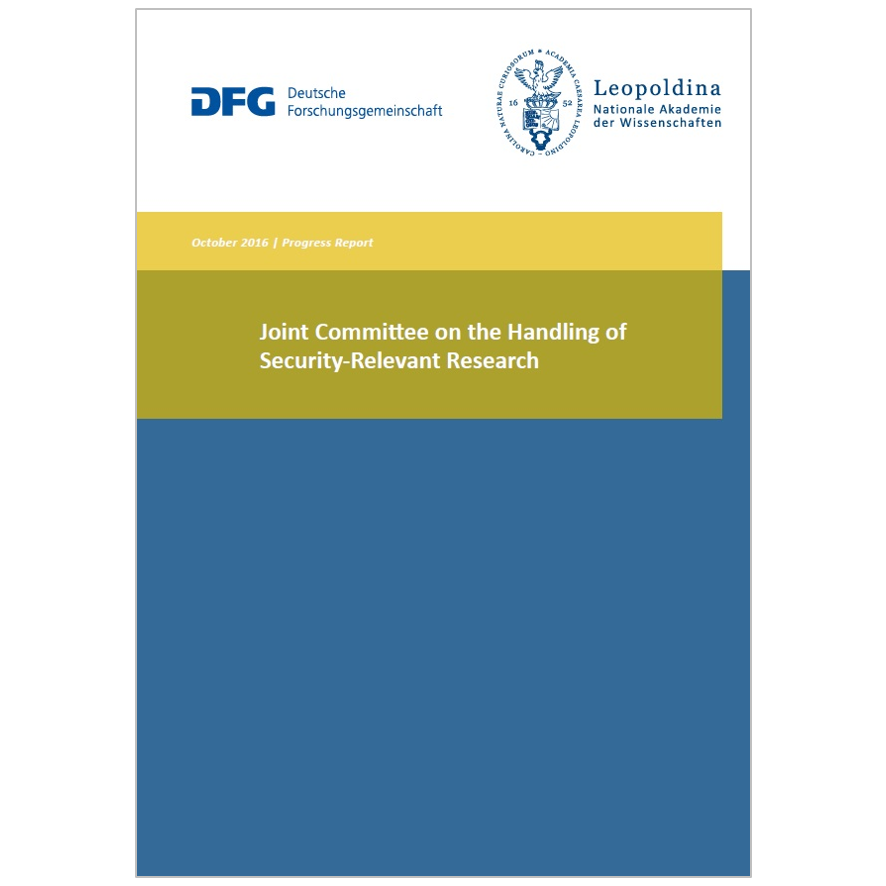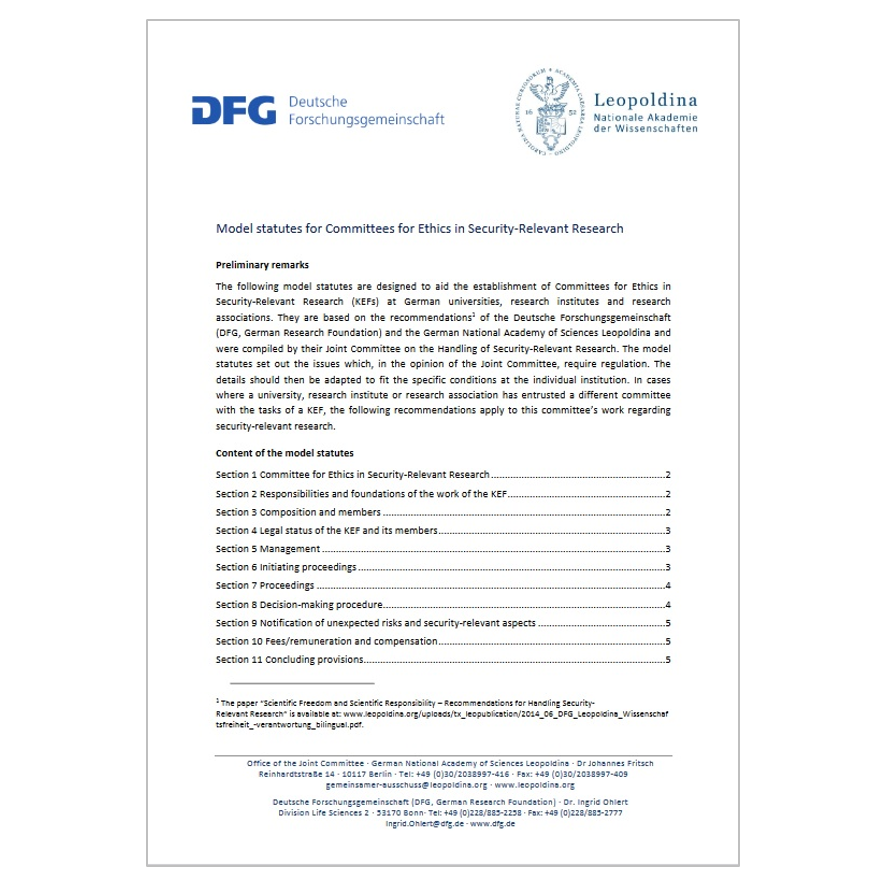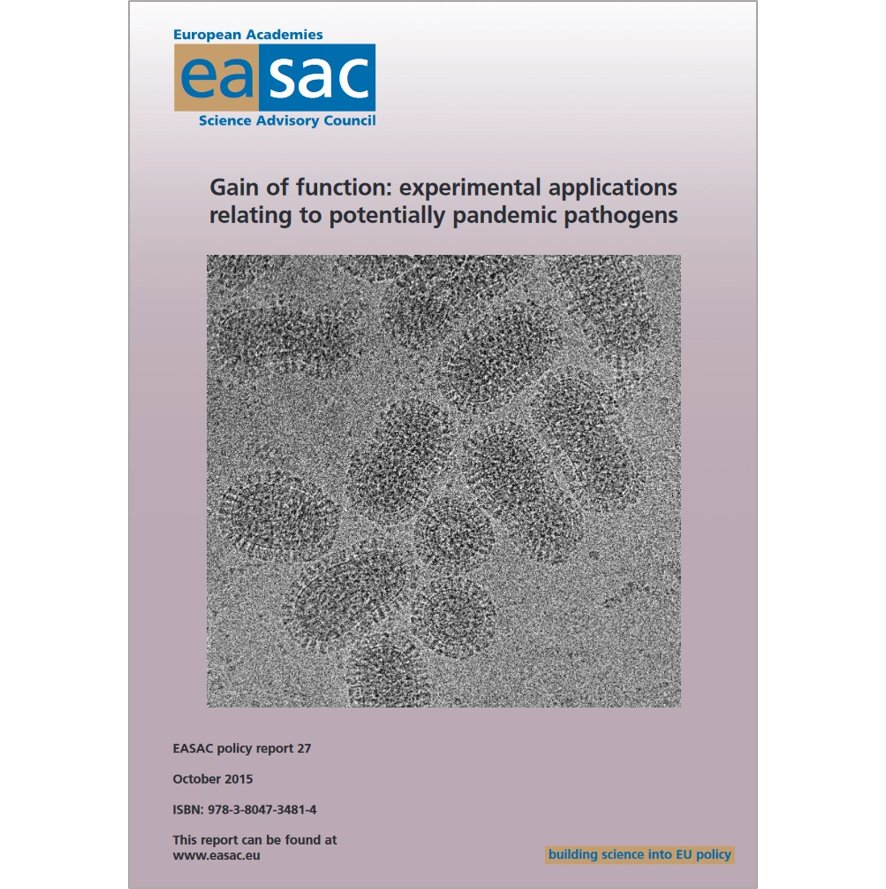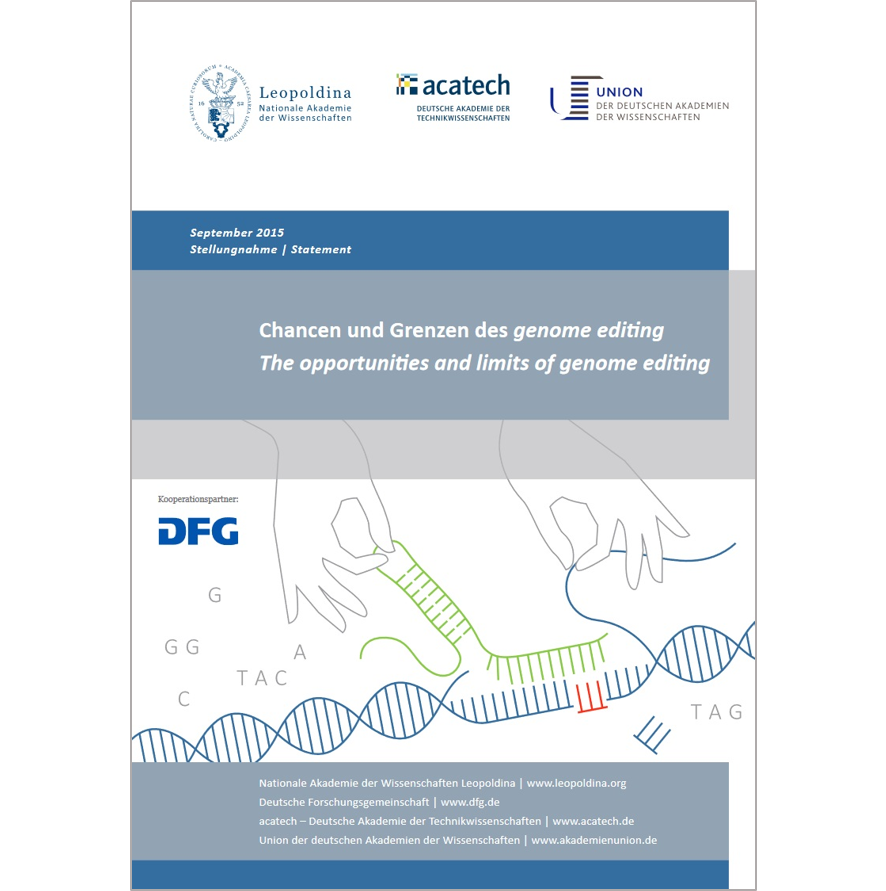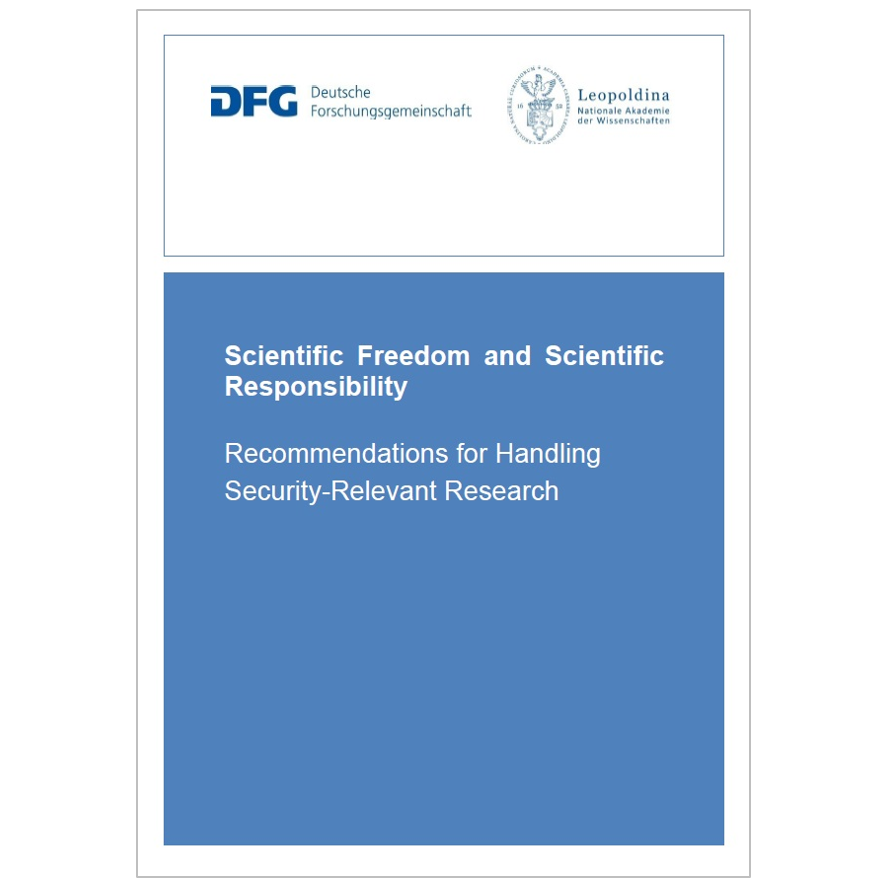Publikationen

-
Startseite
- /
- Publications
- /
- Internal
Publikationen
-
Recommendations from the DFG: Dealing with Risks in International Research Cooperation
Mehr lesen: Recommendations from the DFG: Dealing with Risks in International Research CooperationThe potential risks involved in international research cooperation projects funded by the Deutsche Forschungsgemeinschaft (DFG, German Research Foundation) shall henceforth be subjected to a more thorough and systematic reflection. To this end, the largest research funding organisation and central self-governing organisation for science and the humanities in Germany has put forward recommendations that have recently…
-
Scientific Freedom and Scientific Responsibility Recommendations for Handling of Security-Relevant Research
Mehr lesen: Scientific Freedom and Scientific Responsibility Recommendations for Handling of Security-Relevant ResearchResearch plays a fundamental role in ensuring progress. Freedom of research, which is enshrined in the German Basic Law, is a fundamental requirement in this respect. Yet free research is also associated with risks. These risks can only be covered to a limited extent by legal regulations and result primarily from the danger of useful…
-
Progress Report (2022)
Mehr lesen: Progress Report (2022)Aspects of security-relevant research and related ethical issues are increasingly coming into focus, among other things due to advances in research on artificial intelligence and pandemic pathogens, as well as scientific entanglements with states in which human rights violations and other violations of rule-of-law principles are observed. This is reflected in the fourth Progress Report…
-
Information Brochure “The Handling of Security-Relevant Research in Germany – An Overview”
Mehr lesen: Information Brochure “The Handling of Security-Relevant Research in Germany – An Overview”The information brochure is dedicated to the most important questions about dealing with security-related research in Germany. It gives an initial insight into relevant subject areas, the importance and structure of the committes for ethics in security-related research and the legal framework and funding. It describes case studies and illustrates how ethical aspects of security-related research can be anchored…
-
DFG: Proposal Preparation Instructions
Mehr lesen: DFG: Proposal Preparation InstructionsThese guidelines apply to project proposals under the Research Grants, Emmy Noether, Research Units, Clinical Research Units and Priority Programmes. In point 4.1.5, the DFG requests applicants to check their project for security-relevant aspects and to consult a KEF where necessary.
-
Progress Report (2020)
Mehr lesen: Progress Report (2020)The compliance with ethical principles in security-relevant research receives internationally increasing attention. In particular, aspects of export control and research cooperation with foreign partners are in the focus of German politics and research funding. Security-relevant research risks continue to develop dynamically, for example through new synergies of different disciplines such as research on artificial intelligence,…
-
Key questions for the ethical assessment of security-relevant research
Mehr lesen: Key questions for the ethical assessment of security-relevant researchThe key questions were compiled by the Joint Committee on the Handling of Security-Relevant Research based on the KEFs’ feedback on their work from 2016–2019, published checklists and guidelines on research risks. The Joint Committee believes that the respective responses of researchers and KEFs and the consequences derived from them for the work in question…
-
Crossing Boundaries in Science: The Mystery of Risks – How Can Science Help Reconcile Perception and Assessment?
Mehr lesen: Crossing Boundaries in Science: The Mystery of Risks – How Can Science Help Reconcile Perception and Assessment?The conference format ‘Crossing Boundaries in Science’ of the German National Academy of Sciences Leopoldina is meant to stimulate discussions between areas of research that are particularly dependent on new forms of interdisciplinary cooperation and method transfer. The first international conference, entitled ‘Modelling Nature and Society – Can We Control the World?’ took place in…
-
DFG-Code “Guidelines for Safeguarding Good Research Practice“
Mehr lesen: DFG-Code “Guidelines for Safeguarding Good Research Practice“The aim of the Code of the German Research Foundation (DFG, Deutsche Forschungsgemeinschaft) is to enable the intended audience – researchers as well as heads of universities and non-university research institutions – to align their internal structures, processes and actions with the guidelines for good research practice. The intention is to create a deeply rooted…
-
Ethics committees in security-relevant research according to the recommendations of Leopoldina and the German Research Foundation
Mehr lesen: Ethics committees in security-relevant research according to the recommendations of Leopoldina and the German Research FoundationThe scientific freedom protected by the German Basic Law is a prerequisite for the progress and prosperity of society. However, free research is also associated with risks resulting from the fact that useful research results and methods can be abused, for example as weapons of war or as a means of criminal or terrorist activities. According…
-
Progress Report (2018)
Mehr lesen: Progress Report (2018)The report presents current debates and developments in the field of security-relevant research (Chapters A 2 & A 4). Furthermore, the framework conditions for the funding of security-relevant research by the DFG and the EU Framework Programme for Research and Innovation Horizon 2020 are discussed (Chapter A 4). In addition, the status and specific strategies…
-
Assessing the Security Implications of Genome Editing Technology – Report of an international workshop
Mehr lesen: Assessing the Security Implications of Genome Editing Technology – Report of an international workshopFrom 11 to 13 October 2017, the InterAcademy Partnership (IAP) held a workshop on the latest advances in genome editing and their societal implications. The workshop was organised by the US National Academies of Science, Engineering and Medicine (NASEM), the European Academies Science Advisory Council (EASAC) and Leopoldina.
-
Progress Report (2016)
Mehr lesen: Progress Report (2016)This progress report begins with a summary in Chapter A of the developments leading up to the establishment of the Joint Committee on the Handling of Security-Relevant Research by the Deutsche Forschungsgemeinschaft (DFG, German Research Foundation) and the German National Academy of Sciences Leopoldina in November 2014. Chapter B reports on the tasks of the…
-
Model Statutes for Committees for Ethics in Security-Relevant Research
Mehr lesen: Model Statutes for Committees for Ethics in Security-Relevant ResearchThe model statutes are designed to provide assistance in establishing KEFs (Committees for Ethics in Security-Relevant Research) at German universities, research institutes and research associations.
-
Gain of Function: experimental applications relating to potentially pandemic pathogens
Mehr lesen: Gain of Function: experimental applications relating to potentially pandemic pathogensInfluenza outbreaks cause significant burden to public health. The inability to predict which specific virus subtypes will trigger the next influenza pandemic emphasizes the need to address gaps in the knowledge required to manage future pandemics. Research, including the study of virus transmissibility, host range, resistance, immunogenicity, pathogenicity and virulence, is critical to fill many…
-
The opportunities and limits of genome editing
Mehr lesen: The opportunities and limits of genome editingJoint Statement of the German Research Foundation, the National Academy of Sciences Leopoldina, acatech – National Academy of Science and Engineering, and the Union of the German Academies of Sciences and Humanities. Modern molecular techniques often referred to as “genome editing” or “genome surgery” are currently revolutionising molecular biology research. Technologies such as CRISPR-Cas9 allow…
-
Scientific Freedom and Scientific Responsibility (2014): Recommendations for Handling Security-Relevant Research
Mehr lesen: Scientific Freedom and Scientific Responsibility (2014): Recommendations for Handling Security-Relevant Research1st version, updated 2022. Research plays a fundamental role in ensuring progress. Freedom of research, which is enshrined in the German Basic Law, is a fundamental requirement in this respect. Yet free research is also associated with risks. These risks result primarily from the danger of useful research findings being misused (known as the dual…

